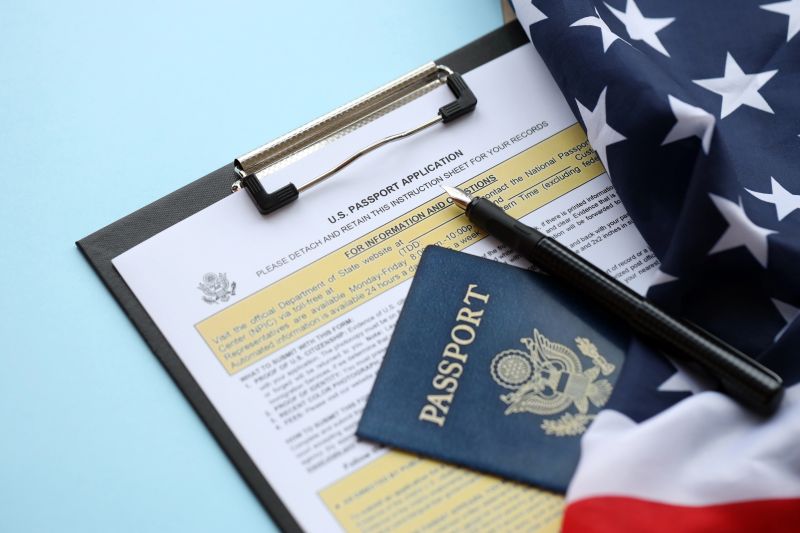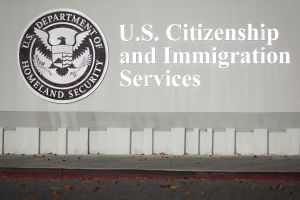Residency & Physical Presence Requirement For Naturalization
Highlights:
Residency and physical presence are key requirements for naturalization. Most applicants must be lawful permanent residents for five years. If they are married to a U.S. citizen, the requirement is only three years. At least half of that time must be physically spent in the U.S. Extended trips abroad can disrupt your eligibility, especially absences of six months or more. A naturalization lawyer can help you understand your timeline and avoid travel mistakes that delay your citizenship goals.

Applying for U.S. citizenship means meeting a set of clear rules, and two of the most important are residency and physical presence. These requirements help USCIS confirm that you’ve truly made the United States your permanent home. For many Houston residents, understanding these rules is the first step toward planning when and how to apply.
The challenge is that travel, work assignments, or extended family visits abroad can affect your timeline in ways you may not expect. The good news is that once you understand how residency and physical presence are measured, you can plan ahead and avoid delays. With the right approach and sometimes with help from a trusted citizenship lawyer, you can keep your path to naturalization on track.
Why Residency & Physical Presence Matter For Naturalization
Residency and physical presence rules are USCIS’s way of making sure you’ve built and maintained your life in the U.S. before granting citizenship. Meeting them shows you’ve established your home, contributed to your community, and intend to stay here.
For Houston residents, this often means balancing ties to family and opportunities abroad with the need to maintain eligibility. There are applicants who met every other requirement but had to delay applying because travel pushed them below the physical presence threshold. Knowing these rules early can help you make choices now that protect your eligibility later.
Breaking Down The Residency Requirements
Meeting the residency requirement means proving you’ve made the U.S. your permanent home for a specific amount of time. It’s more than just holding a Green Card; it’s about showing a consistent connection to life here in Houston and across the country.
Continuous Residence
Continuous residence means keeping your primary home in the United States during the required period before applying. You can travel abroad, but long or frequent trips can raise questions about whether you’ve kept your U.S. home base. USCIS looks at your living arrangements, work history, and ties to the community to decide if your residence has been truly continuous.
Standard Timelines
Most applicants must be lawful permanent residents for five years before applying. If you’re married to a U.S. citizen and meet other conditions, you can apply after three years. This timeline must be paired with meeting the physical presence requirement, which is calculated separately.
Special Considerations
Some applicants have exceptions to the standard rules. For example, certain military members may qualify for expedited naturalization without meeting the usual residency timelines. Humanitarian cases, such as VAWA applicants, may also have adjusted rules that better fit their circumstances.
What Is The Physical Presence Rule?
While continuous residence is about where you keep your home, physical presence is about counting the actual days you’ve been inside the United States. USCIS uses this rule to make sure you’ve spent enough time living here, not just maintaining an address.
Physical presence counts every day you are physically in the U.S., regardless of whether you’re working, on vacation, or simply at home. Days spent abroad, even for short trips, do not count toward this total. USCIS calculates this by reviewing your travel history from the date you became a permanent resident to the date you file for naturalization.
If you’re applying under the five‑year rule, you must have at least 30 months (about 913 days) of physical presence in the U.S. within that period. If you qualify under the three‑year rule as the spouse of a U.S. citizen, the requirement drops to 18 months (about 548 days). Failing to meet these minimums means you’ll have to wait longer before applying, even if you meet every other requirement.
How Can Extended Travel Affect Eligibility?
Travel abroad is common for many Houston residents, whether it’s visiting family, handling business, or taking a much‑needed vacation. But for naturalization purposes, the length of your trips matters, and the wrong travel pattern can disrupt your eligibility.
Trips Under Six Months
Short trips generally don’t break continuous residence. However, USCIS may still ask why you traveled and whether you kept strong ties to the U.S. It’s wise to keep documentation like proof of your Houston home, employment, or ongoing community involvement.
Trips Over Six Months But Under One Year
Trips in this range trigger a presumption that you’ve broken continuous residence. You can overcome this by showing evidence you kept your home in the U.S., such as maintaining a lease or mortgage, paying taxes, or working for a U.S. employer. Without strong proof, you may have to restart your residency clock.
Trips Over One Year
Spending a year or more outside the U.S. almost always disrupts continuous residence, unless you qualify for special exceptions. Even with valid reasons, USCIS typically treats these absences as a break in your residency and requires you to start the count over. If long travel is unavoidable, speak with a naturalization attorney before leaving.
How To Prove That You Maintained Your U.S. Residence
If you’ve had long or frequent trips abroad, you may need to show USCIS that you still consider the U.S. and Houston your permanent home. Presenting these documents can help protect your eligibility.
| Evidence Type | Examples |
| Housing Records | Lease agreements, mortgage statements, or property tax bills showing you maintained a U.S. residence. |
| Employment Records | Pay stubs, W-2s, or a letter from your employer confirming ongoing U.S. employment. |
| Tax Filings | Federal and state tax returns proving you filed as a resident, not a nonresident. |
| Family Ties | Birth certificates, school records, or other proof that your spouse or children remained in the U.S. during your travel. |
| Community Involvement | Memberships in local organizations, church attendance records, or volunteer activity logs. |
The stronger your proof, the easier it is to show USCIS you never truly left your life in the United States behind.
What Are Some Common Roadblocks & How Can You Overcome Them?
Even well‑intentioned applicants can run into trouble if they misunderstand residency and physical presence rules. These are the missteps I see most often and how to avoid them.
- Mixing Up Continuous Residence and Physical Presence – They are related, but have different requirements. Learn the difference early so you track both correctly.
- Not Tracking Travel Days – Even short trips add up. Keep a record of every departure and return date.
- Failing to Keep Proof of U.S. Ties – Without documents showing your home base in Houston, long trips may hurt your case.
- Assuming Short Trips Are Always Safe – Multiple short absences can still reduce your total physical presence days.
- Filing Too Soon – Applying before you meet the residency or physical presence threshold will result in a denial and wasted filing fees.
Avoiding these mistakes keeps your naturalization timeline on track and saves you from costly do‑overs.
Your Guide Through The Residency Rules

Residency and physical presence requirements can be tricky, especially if your life involves travel, overseas work, or family abroad. At Houston Immigration Lawyers, we review your travel history, calculate your timeline, and help you avoid the pitfalls that can delay your citizenship goals. When you work with a citizenship lawyer from our team, you’ll have the confidence of knowing your application is backed by accurate planning.
We guide you in gathering the right proof, timing your application, and explaining your travel in a way that USCIS understands. If you want clarity on when to apply and how to protect your eligibility, schedule a confidential consultation with our naturalization law firm today.
About The Author: Kate Lincoln-Goldfinch
 Kate Lincoln‑Goldfinch founded Houston Immigration Attorneys in 2015 and serves as its managing partner. After earning her J.D. from the University of Texas School of Law in 2008, she launched her advocacy journey as an Equal Justice Works Fellow supporting detained asylum‑seeking families. Today, Kate concentrates on family‑based immigration, deportation defense & humanitarian relief, including asylum & VAWA cases. She volunteers as Pro Bono Liaison for the AILA Texas Chapter and was honored as a Top Immigration Attorney by Austin Monthly in 2024. A mother of two, Kate is driven by a passion for immigrant justice and building stronger communities.
Kate Lincoln‑Goldfinch founded Houston Immigration Attorneys in 2015 and serves as its managing partner. After earning her J.D. from the University of Texas School of Law in 2008, she launched her advocacy journey as an Equal Justice Works Fellow supporting detained asylum‑seeking families. Today, Kate concentrates on family‑based immigration, deportation defense & humanitarian relief, including asylum & VAWA cases. She volunteers as Pro Bono Liaison for the AILA Texas Chapter and was honored as a Top Immigration Attorney by Austin Monthly in 2024. A mother of two, Kate is driven by a passion for immigrant justice and building stronger communities. 

